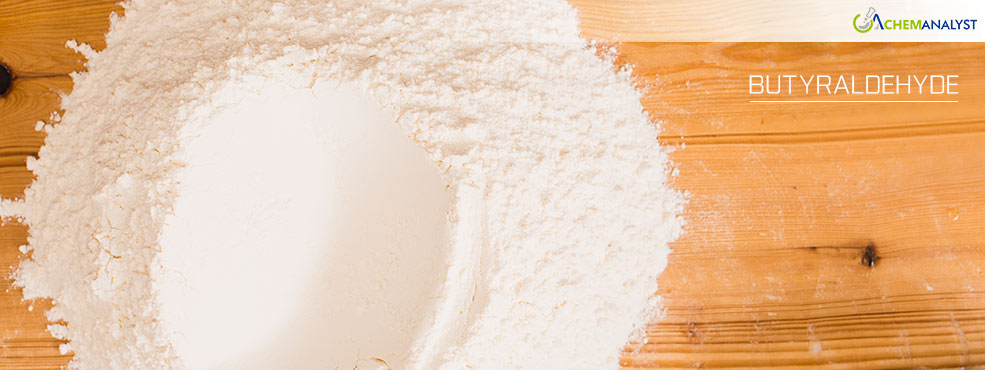Welcome To ChemAnalyst

Butyraldehyde prices remained under pressure during the first week of October 2024 across the Asia-Pacific (APAC) region, continuing the decline that persisted throughout September due to bearish demand from key downstream sectors. The market faced a significant imbalance between ample supply and weak demand, as industries such as paint, coatings, adhesives, plastics, and other end-use sectors struggled. Overall Butyraldehyde market sentiment remained cautious, marked by subdued buying interest and limited procurement activities.
In September 2024, Butyraldehyde prices across Asia followed a downward trajectory, primarily driven by weak demand and high inventory levels. The Chinese market, a major player in the region, experienced declining prices, exacerbated by sluggish demand from downstream industries, particularly affected by a slowdown in construction activities. From January to September, the total sales of the top 100 real estate companies reached 2969.94 billion yuan, marking a year-on-year decrease of 38.8%, which severely impacted downstream industries. Additionally, the falling cost support from feedstock propylene added pressure, as propylene prices dropped significantly in China due to oversupply and weak demand in the polypropylene sector. This decline in propylene prices was further influenced by lower naphtha costs, creating a competitive market environment. Moreover, the broader Asian market saw a reduction in crude oil prices throughout September, driven by concerns over global demand and increased oil supply, which dragged down the export prices of petroleum-based products, including Butyraldehyde, keeping production costs low.
Addition to the market challenges were ongoing trade tensions and barriers, including U.S. and European tariffs on Chinese goods, which negatively impacted China's Butyraldehyde consumption. Restrictions imposed by other Asian countries, such as India and Malaysia, on Chinese plastic products further curtailed demand in the region's downstream sectors. Further, China’s export growth rose by only 2.4% year-on-year, significantly below the expected 6.18%, while disruptions from extreme weather, global shipping congestion, and base effects further dampened the demand outlook for Butyraldehyde. Additionally, holiday closures due to the Golden Week in China during early October 2024 further reduced production activities, keeping inventory levels high and suppressing upward price movement for Butyraldehyde.
In India, the Butyraldehyde market mirrored this downward trend, with prices declining due to oversupply and weak demand. The construction sector, a major consumer of Butyraldehyde, faced significant disruptions due to heavy rainfall and flooding across key regions, stalling numerous housing projects. This led to a sharp decline in demand from the paint and coating sectors. Moreover, India's manufacturing sector experienced a downturn, with reduced new orders and procurement activities, while excess inventories of raw materials and finished goods further weakened market sentiment.
However, prices are expected to incline in the coming months as the peak festivities ends, especially in APAC regions like China and India. As construction projects resume and manufacturing activities pick up post-holiday, demand for Butyraldehyde is expected to recover, offering potential price support.
We use cookies to deliver the best possible experience on our website. To learn more, visit our Privacy Policy. By continuing to use this site or by closing this box, you consent to our use of cookies. More info.
